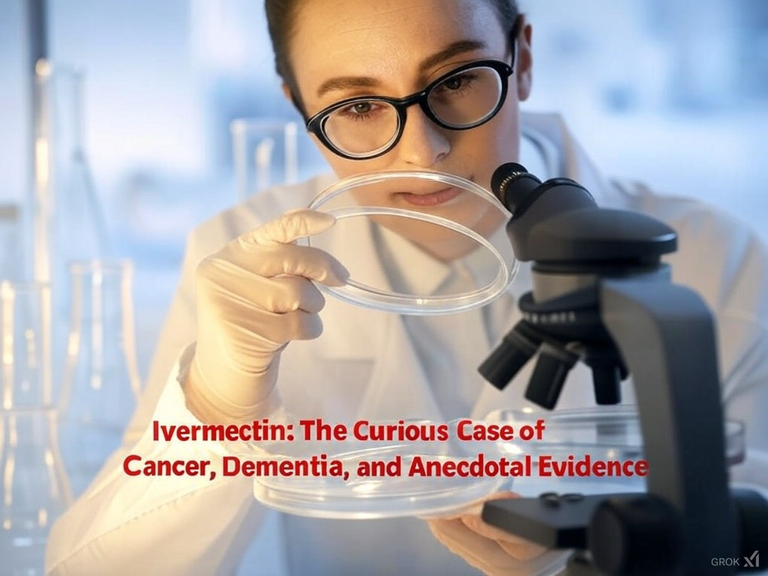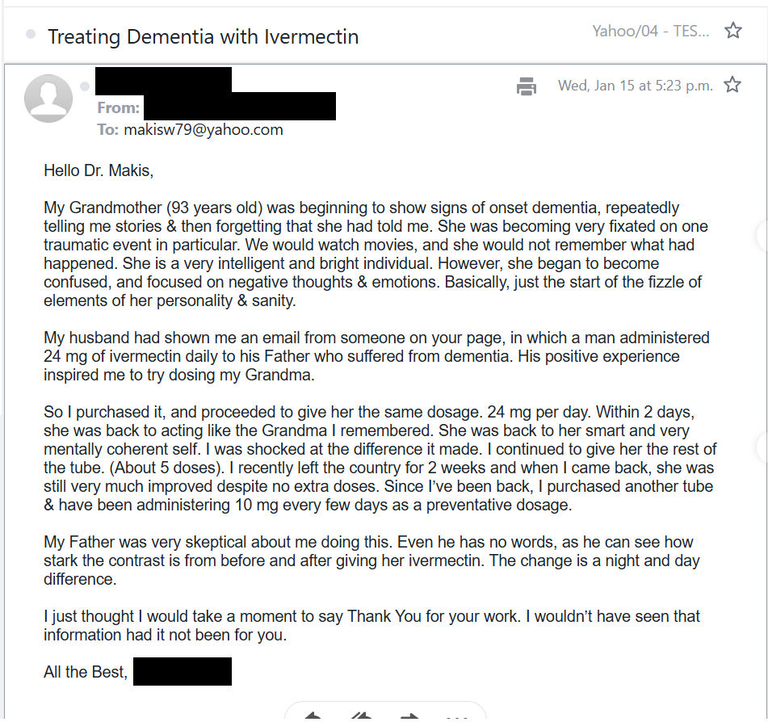A few days ago, I made a post about the tons of anecdotal evidence available online about the effectiveness of the ivermectin-fenbendazole combination in tackling stage 4 cancer. As a science enthusiast, I am quite cautious about spreading unproven scientific claims due to the devastating effects they may have on the populace. You never know how far content posted on the web will go.
In that post, I highlighted the lack of attention from the medical and scientific community to the various claims made by laymen and professionals alike. I read somewhere on social media that some medical professionals go as far as rejecting cancer patients who choose to go the ivermectin-fenbendazole route. The question remains: why are they all running away from this approach despite the numerous claims of its effectiveness?
 Image generated by Grok
Image generated by Grok
I tried to research further. One of the claims against ivermectin is that it has the potential to render whosoever takes it infertile. However, I guess someone who has only a few months left to live would readily sacrifice their fertility for a longer life. That's assuming, of course, that people are making rational decisions in the face of terminal illness.
While reading more about ivermectin, something interesting also came up. I discovered several anecdotal claims that ivermectin works against dementia. Dementia is an umbrella term for a group of conditions that cause a decline in cognitive function, affecting memory, thinking, and behavior. Alzheimer's disease is the most common form of dementia. With over 55 million people worldwide living with dementia in 2020, this number is expected to nearly double every 20 years, reaching 139 million by 2050.
The risk of developing dementia increases significantly with age. While it can occur at younger ages, it is much more common among people over 65. The risk continues to increase with each passing decade, with the highest risk found in individuals aged 90 and older. Just like cancer, dementia doesn't have a known cure yet, but it can be managed using drugs. You can imagine the joy of a man whose grandmother with dementia suddenly starts functioning properly because of a few doses of ivermectin.
According to one of the numerous pieces of information shared on X by a renowned medical researcher and oncologist, there have been three cases directly reported to him on the effectiveness of ivermectin on dementia. One of the cases was a 93-year-old woman. Below is a screenshot shared by the physician on his X page. It can be found here.
Interestingly, other claims that ivermectin is effective against various other diseases exist in the comment section.
Should All These Testimonials Be Taken Seriously?
I'm a firm believer in conducting comprehensive research before arriving at conclusions. The scientific method remains sacrosanct. Thus, I may not recommend ivermectin as a treatment for cancer or dementia due to inadequate scientific information on its effectiveness. This is, perhaps, why many medical professionals are hesitant to endorse the drug. You wouldn't want to lose your license for some emotional decisions.
Putting science aside, if you have a loved one battling cancer and they have been given just a few months to live even after exhausting all the available medical interventions, would you not want to try out ivermectin? I think a normal person would want to.
Anecdotal evidence remains anecdotal until science investigates and either confirms or disclaims it. However, if the scientific community is reluctant to investigate these anecdotal claims, what should a layperson do?
The Intersection of Hope and Science
The dilemma faced by many is the balance between hope and scientific validation. For those in desperate situations, anecdotal evidence can be a beacon of hope, even if it lacks rigorous scientific backing. There exists this distrust among the populace of big pharma and their capitalist shareholders. Call it a conspiracy theory, but many believe that the lack of scientific attention on the potential of ivermectin is a deliberate one from the movers and shakers in the medical industry. There goes the popular saying, "managing a disease is more profitable than providing cures".
From the perspective of business, it is true that focusing on management drugs rather than curative drugs brings more profits. It keeps the money flowing from the populace to the pockets of shareholders. This is rational thinking. I wouldn't want to believe that the lack of attention on ivermectin as a potential cure for cancer (and now, dementia) is a mere coincidence. Everyone knows that in science, attention goes to where the funding is. If the funders are not looking at ivermectin's side, there is nothing Physicians can do.
My prediction is that ivermectin will become more expensive as more and more people opt for this anecdotal treatment in combination with or in place of conventional treatments.
Your opinion on this?
Resources
- https://pmc.ncbi.nlm.nih.gov/articles/PMC7505114/
- https://www.cancer.gov/research/participate/clinical-trials-search/v?id=NCI-2022-02421
- https://www.biorxiv.org/content/10.1101/2023.11.30.569432v1.full
- https://www.nih.gov/news-events/nih-research-matters/common-drug-may-have-potential-treating-alzheimers-disease
Posted Using INLEO

If Ivermectin is as effective as depicted in anecdotes, it would be interesting to know what the mechanism of action is to determine why it's effective. It seems unlikely that ivermectin could dissolve amyloid plaques in a matter of days, so that would suggest it has something to do with the gut or inflammation in general.
I think there are a couple of research (I included some at the end of the post). The primary concern is why there are no clinical trials o either debunk or confirm the anecdotal claims. I guess this is not attractive to the funders of health research. I could be wrong.
You likely have the gist of it with the profit incentive in treatment versus cure. Bringing a drug to market is expensive.
Thanks for your contribution to the STEMsocial community. Feel free to join us on discord to get to know the rest of us!
Please consider delegating to the @stemsocial account (85% of the curation rewards are returned).
You may also include @stemsocial as a beneficiary of the rewards of this post to get a stronger support.